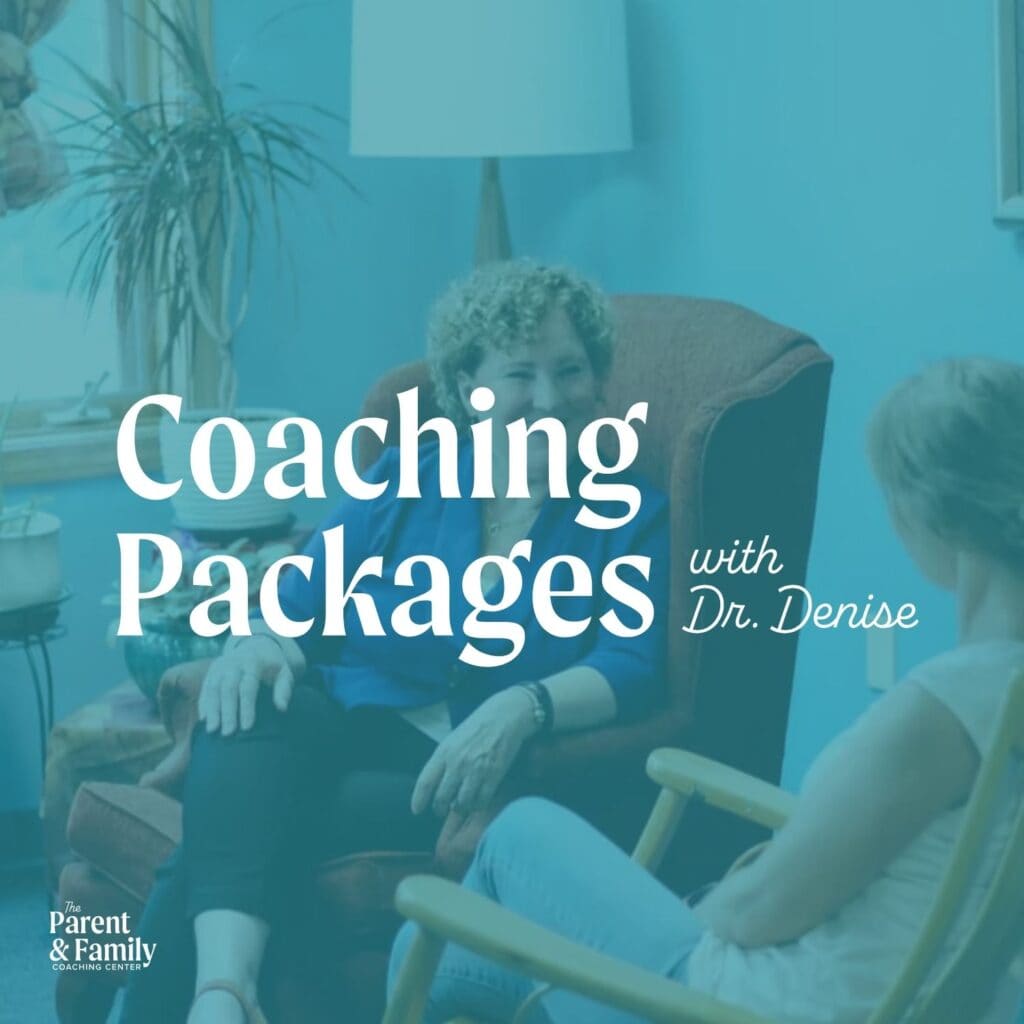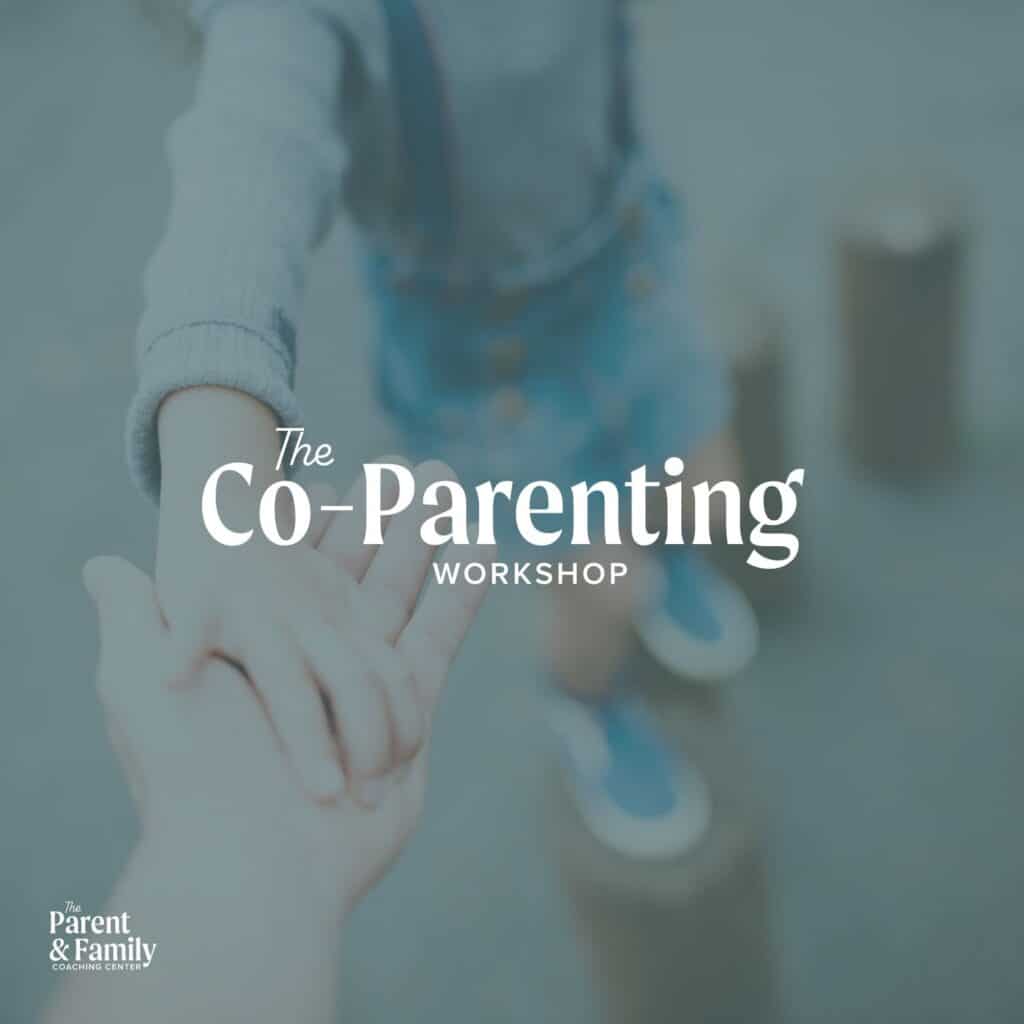How Well You Co-parent Matters
Developing a Co-Parenting Communication System that Works!
There is a lot to say on the subject of co-parenting. We need to be talking about it more than we do given the high percentage of families in the United States with children being raised by divorced and separated parents. Systemically, divorce is still about the legalities rather than the children, though researchers have consistently highlighted the devastating effects of divorce on children. The good news is that 2 decades of family research tells us that these potentially devastating effects can be mitigated if co-parenting partners have support available to them and have access to education and coaching.

Ready to make impactful changes in your parenting strategy?
Resources for Separating and Divorcing Parents
I’m glad you have joined me in this conversation about co-parenting, a conversation about how to be effective co-parenting partners! If you have kids and are thinking about or are in the process of divorcing, an excellent resource for co-parenting partners is Dr. Benjamin Garber’s book, “Keeping Kids Out of the Middle”.
You can also check out a virtual workshop program I developed, The Co-Parenting Workshop that is available for registration on our website. This workshop will be starting soon! In the Spring, we’ll have a self-paced co-parenting workshop available for purchase as well, so check out the website!

You can join our next co-parenting workshop today!
Learning to Co-Parent Well
Let’s start with a question to reflect on, a question that is often asked by co-parents: “How do I co-parent well with my kids’ other parent when the two of us had serious struggles in our relationship?”
Take a few minutes to think about this question, maybe write down some thoughts. Write down some thoughts about how you are co-parenting and whether this is “good enough” to support your children in their development. When I reflect and then write, it helps me feel centered and authentic reflection, even problem-solving, happens more fluidly. Try writing down your reflections, see if this deepens your thinking and reflective experience.
Let’s ask another question: “What are the consequences for my family if we don’t learn to co-parent well?” Hopefully the answers to this question are a motivational force for learning to co-parent well, a force that can sustain you and your co-parent through the emotional challenges your family experiences during this transition. There is a lot of well-done research that answers this question for us, but let’s make it close and personal: “What are the consequences for my family if my co-parent and I don’t learn to co-parent well?” Reflect for a while … then write down some thoughts. After some reflective time, create a mantra for yourself. Something like, “Divorce and separation can be devastating for children and teens, but I can protect my children from harm by learning how to co-parent with love, knowledge and effective co-parenting strategies.”
You can lead your family through this transition and help your children THRIVE! It takes lots of love, patience, learning of essential co-parenting strategies, and practice … practice … practice.
Effective Co-Parenting Communication
Let’s focus on developing an essential practice that promotes positive co-parenting:
Effective Co-Parenting Communication. This is an excellent action step to take on your journey to becoming the best parent for your kids! When co-parenting partners are communicating respectfully and reliably, are factual and child-centered in their communications, and are positively engaged in decision-making, the negative consequences of divorce for children and teens are mitigated! Your kids can thrive despite the challenging family transition. Let’s look at a communication system for co-parenting partners that works!
For this article, I’m writing for co-parenting partners who are striving to be the best parents they can be, and are willing to work together to achieve this goal. In a later article, I will share some action steps related to co-parenting communication for the unfortunate circumstances where one parent is unwilling to learn to effectively co-parent. In the meantime, you can go to our website and sign up for co-parent coaching, and I will work with you on effective parenting regardless of your co-parenting circumstances. Website: www.parentfamilycoachingcenter.com.
Developing a Co-Parenting Communication Plan
The first step in learning to co-parent well is usually to create a communication plan, a plan that makes communication between you and your co-parenting partner routine. We know that when actions are part of our routine, these activities become less stressful and will have less emotionality associated with the divorce. In this article, we focus on three action steps that are foundational in establishing a routine communication system for you and your co-parenting partner.
Co-Parenting Communication Plan – Action Step #1
The Weekly Co-Parenting Partners Meeting
- Establish an agreement with your co-parenting partner to meet weekly for one hour at the same day and time (if possible as this reduces lots of scheduling and rescheduling and allows both to prepare for the meeting); the goal of this meeting is to co-parent well!
- Create written guidelines for The Weekly Co-Parenting Partners Meeting, guidelines that are detailed enough so the meeting is productive and child-centered. An example of The Weekly Co-Parenting Partners Meeting Guidelines is included on our Resource Page. Some essential elements of these guidelines include:
- The meeting starts on time and ends after one hour.
- Parents will email 3 days prior to the scheduled meeting and provide two items to be discussed at the meeting; this gives the other parent an opportunity to prepare for the discussion. This email is structure as follows:
- The email is titled: Agenda Items for Our Weekly Co-Parenting Partners Meeting on _______ at ________.
- The agenda items are each described briefly and the initiator states their desired outcome of the discussion.
- This email is like a business email: fact-based, action and problem-solving focused, positive and non-blaming.
- All items for discussion are relevant to the present and future of the children’s lives, necessarily need to be resolved, and are presented factually.
- The meeting begins with a friendly greeting and a sharing of a positive child interaction.
- Each of the four agenda items is allotted 10 minutes of discussion time. At the end of 9 minutes of discussion for each item, parents decide:
- If the agenda item was resolved, the parent that introduced the agenda item sends a summary email.
- If the agenda items need more research or pondering, parents decide when to discuss this again.
- If the discussion was too conflictual or seems impossible to resolve, parents can postpone the discussion until they further develop their co-parenting skills or agree to schedule a facilitated discussion with a mediator, therapist or coach.
- The past is left in the past; this meeting is about the present and future for your children.
- Both parents stay calm, respectful, and factual during the discussion. If a parent feels themselves escalating with anger, resentment, sadness or stress, the meeting is ended respectfully and without judgment, and the co-parenting partners practice again next week.
- Check out our website Resource Page for a more detailed outline of The Weekly Co-Parenting Partners Meeting Guidelines
- Remember: Your kids are watching! Teach your children with your example how to learn and practice important life lessons, especially when these practices are challenging; let them know that they are important and that both of their parents are working hard to make sure they are loved and supported in all they need.
Co-Parenting Communication Plan – Action Step #2
Co-Parenting Partners Communication beyond The Co-Parenting Partners Meeting
Once co-parenting partners get good at The Co-Parenting Partners Meeting, there are only a few reasons to communicate between meetings. Create a written agreement with your co-parenting partner about why and how you will communicate with each other between meetings. I suggest the following guidelines:
- When there is an emergency, serious event, or loss with anyone in the family, the other parent needs to know right away; a phone call is best in this circumstance. Describe the issue, tell the other parent what you are doing about it, and state how they can be helpful in this circumstance. It is best if the other parent says yes to any requests for help, and states clearly what they will do when the call is ended. If the co-parenting partner does not answer the call, send a text that says: “Call me immediately.”
- Scheduling changes for the children’s activities or school events or TWCPM are best managed with a brief text message. If there needs to be an immediate discussion about the scheduling change, schedule a phone call in a text. This is not relevant for parenting time changes, these should be discussed in The Weekly Co-Parenting Meeting.
- Sometimes we need to have discussions about our children or with our children that are more urgent and are best discussed right away: your child is distressed about an experience at school, you are distressed about something that is going on with your child, a decision needs to be made about a child or family activity. When this happens, text your co-parenting partner and schedule a phone call to discuss and bring to resolution this challenging circumstance.
- When something joyful, exciting, or surprising happens in the family, both parents should know about this right away; both parents need the opportunity to celebrate with the kids! A parent can ask the child to call the co-parent and share the good news or the parent can call or send an email describing the joyous happening!
I have seen over and over again the positive effects of this action step… children, teens and parents are less stressed and move through challenging family transitions in more positive ways!
Co-Parenting Communication Plan – Action Step #3
Make Every Co-Parenting Partners’ Interaction Friendly, Respectful and Child-Centered
Yes, you can do this! Your kids need you to take this action step; they learn lots of life lessons as they observe parents interacting with each other, so ask yourself: What lesson do you want them to learn from observing how you and your co-parent interact with each other?
This action step is influential in mitigating the negative consequences of separation and divorce for your children, and you can achieve this action step with the right attitude, some perseverance, and lots of practice. Read on for some tips on achieving this goal …
For many co-parents, interacting with each other in friendly, respectful and child-centered ways is challenging, sometimes it even feels impossible. So often, when I begin working with co-parenting partners, this is where the coaching and practicing begins. If this is challenging for you and your co-parent, try some of these strategies and make this change. Your kids will reap tremendous benefits! If you and your co-parent have already achieved this kind of cooperative relationship, bravo! Read on to the next post on co-parenting!
- Set the Goal
If we want to make a change in ourselves or our lives, or both, we have to first commit to the goal. Determining the kind of relationship you are going to have with your co-parenting partner starts with a decision that this change is necessary and important.
I hope I have convinced you that a positive co-parenting partnership is hugely beneficial for your children. If you are not convinced, read a bit of Dr. Garber’s book, “Keeping Kids Out of the Middle”.
Let’s do a visualization exercise together.
Breathe deeply and evenly as you experience your love for your children.
Take a few minutes to experience your heart rate slowing down and your body relaxing as you think about your children and feel your love for them.
Imagine interacting with their other parent in a way that makes them feel safe, happy, loved by both parents.
Keep breathing deeply and slowly for three to four minutes.
Now commit to the goal: Make Every Co-Parenting Partners’ Interaction Friendly, Respectful and Child-Centered
- Predict, Plan, and Practice … Makes Us Better at Everything
We experience lots of complex emotions associated with intimate relationships, and we need to accept the emotional turmoil most experience when transitioning their family through divorce. Even so, we can protect our children from much of this if we are willing to apply the effort.
Let’s start now with predicting, planning, and practicing your next 5 interactions with your co-parenting partner. Perhaps this interaction will be a phone call during which you need to ask for a parenting time schedule change. Or maybe you need to go to your co-parenting partner’s home to pick up your children. Do your kids participate in sports? Maybe one of the next 5 interactions with your co-parenting partner happens at a sports event.
Predict and write down the next 5 circumstances when you will be interacting with your children’s other parent.
Now, write down a plan for your behavior that matches the goal you committed to. Create scenarios and decide how you will respond. You are planning to achieve your goal. Write these scenarios down for each of the 5 circumstances.
Practice! Run through these scenarios in your mind or role-play them with a trusted friend. Give yourself an opportunity to get familiar with your new co-parenting skills. Before each circumstance, run through these scenarios again, read your goal, predictions and planning, and remind yourself that this effort is all for your children’s well-being!
- Know that all change takes time. Remind yourself of the importance of a kind and collaborative relationship with your co-parenting partner. Recommit to the goal and keep on practicing.
- If you are having trouble managing your emotions and stress, there are resources available to you. View our Resources Page
We can all learn to reduce our stress and manage our emotions, sometimes we need some help. Reach out to trusted family and friends or professional resources like a therapist or life coach; join a yoga class or other mindfulness training activity; start hiking or walking every week. You can take action to reduce your stress and emotional reactivity!
Co-Parenting Well Starts with a Co-Parenting Communication Plan
There is a lot to say on the subject of co-parenting. It’s complex and intense and so very important that we get it right. These co-parenting communication strategies presented here have been helpful to many families, I hope this reading was helpful to you. Let me know.
